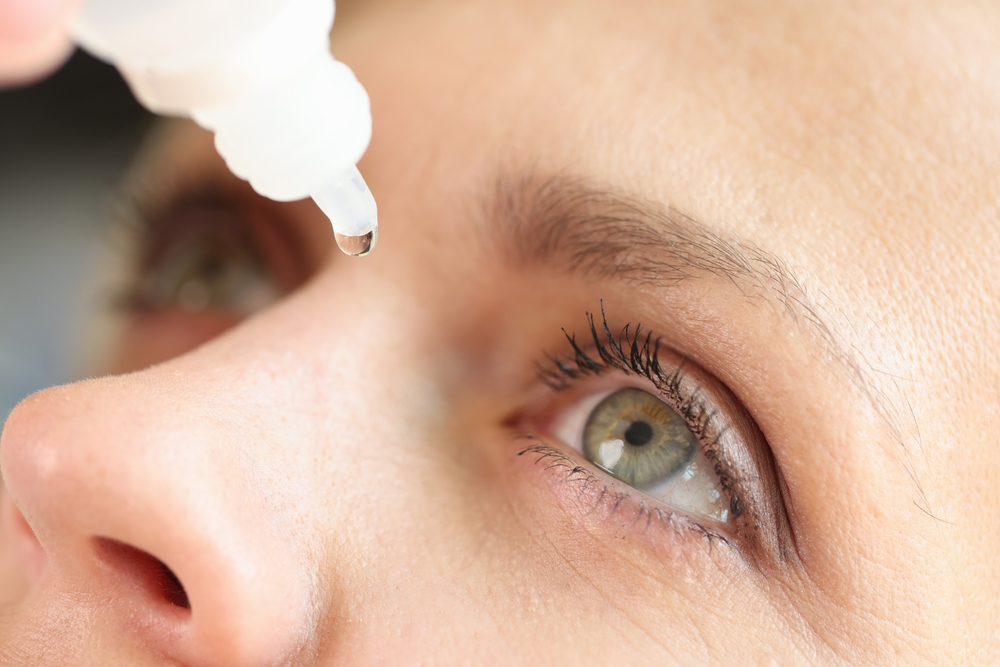The U.S. Food and Drug Administration has warned companies from selling unapproved eye products to consumers. However, eight companies illegally marketed products to treat glaucoma, conjunctivitis, cataracts, and more. According to an FDA press release, the agency is concerned about the harm that unapproved products can cause. Some of the eye products contain silver, which has serious long-term effects. Silver exposure can cause argyria, which makes skin and body tissue turn grayish-blue. Additionally, the FDA said these unsafe products being available for purchase can hinder consumers from using FDA-approved products that are effective.
This isn’t the only time the agency has cracked down on ophthalmologic products in recent history. Earlier this year, the FDA announced a recall of EzriCare and Delsam Pharma artificial tears products after the eye drops were linked to a rare strain of a drug-resistant bacteria called ??Pseudomonas aeruginosa. The bacteria causes eye problems, leading to permanent vision loss and blood infections. The companies that manufacture the recalled products are facing artificial tears eye drops lawsuits from consumers who developed illnesses after using the products. At least one death has been linked to the products, while other patients will have lifelong health problems.
The Danger of Unauthorized Products
Using unvetted products is risky regardless of which part of the body they’re designed for. However, dangerous ophthalmologic products carry a unique risk. Droplets in the eye can easily travel to the bloodstream and lungs, and eye infections quickly spread to the rest of the body. Eye infections can cause meningitis or sepsis, which are life-threatening when left untreated. Also, unsafe eye products can cause vision problems and total blindness. Vision loss has been associated with loneliness, social isolation, and depression. The symptoms can make it harder to work and live independently. When you buy a product at a pharmacy or online retailer, you may assume it’s been properly vetted for safety. Unfortunately, that isn’t always the case. The FDA says unsafe eye products are especially worrying because medications administered via the eyes “bypass some of the body’s natural defenses.” The companies that received warning letters from the agency are listed below.
CVS and Walgreens are the most notable names, with each retailer having thousands of stores nationwide. Both were cited for their branded eye products — CVS Health Pink Eye Relief Drops in CVS’s case and Walgreens Allergy Eye Drops, Walgreens Stye Eye Drops, and Walgreens Pink Eye Drops by Walgreens. CVS took the product off shelves and is offering consumers a full refund.
In the letters, the FDA details the steps that companies should take. They were given 15 days to respond to the violations and share their plans to fix them. They could also appeal if they think the warning was issued by mistake. Many of the named eye drops are labeled homeopathic, but these products are subject to the same regulations as non-homeopathic medication and drugs.
Manufacturers Face Eye Drop Lawsuits
Walgreens faces a proposed class action from a consumer who says the company’s eye drop labeling misled her. According to the lawsuit filed last month, Walgreens’s claims were “false, deceptive and misleading for numerous reasons.” The plaintiff seeks monetary and statutory relief, and the number of plaintiffs could grow.
While the Walgreens class action complaint addresses false advertising, the artificial tear manufacturers embroiled in lawsuits over their products face more serious claims. One woman is suing Global Pharma Healthcare, manufacturer of EzriCare Artificial Tears, after developing an infection so severe that she lost her right eye. Another plaintiff developed sepsis after using an EzriCare product and spent days in an intensive care unit.
A deadly infection is the last thing you think when buying eye drops touted as safe. But for many consumers, it became an unexpected reality. The FDA’s crackdown on mislabeled eye drops could prevent another disaster similar to the one that EzriCare and Delsam Pharma customers have faced. If you’ve been injured by eye drops or purchased a mislabeled product, consult an artificial tears attorney to discuss your legal options.


